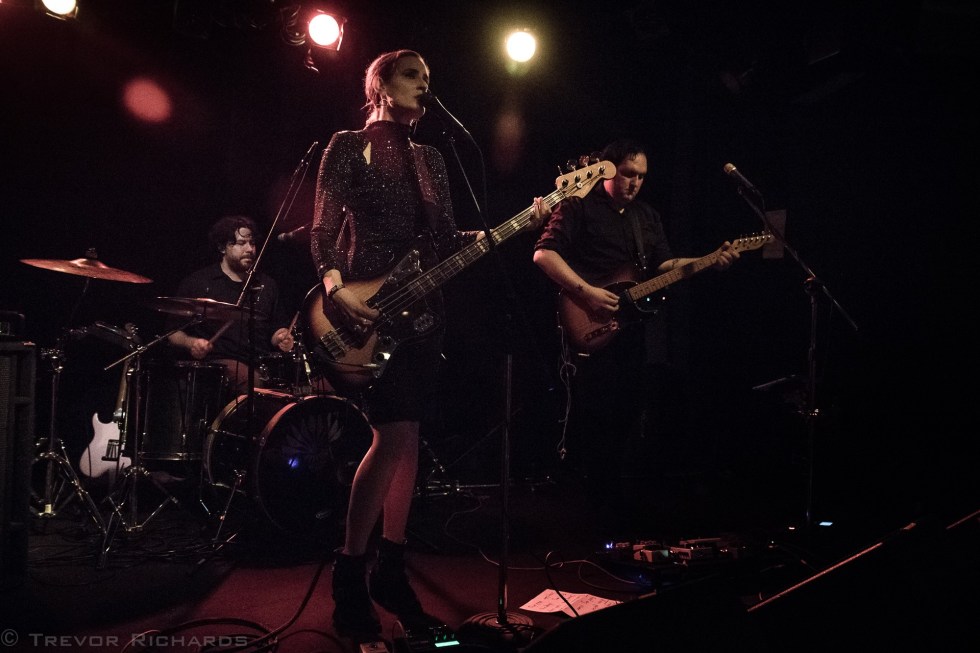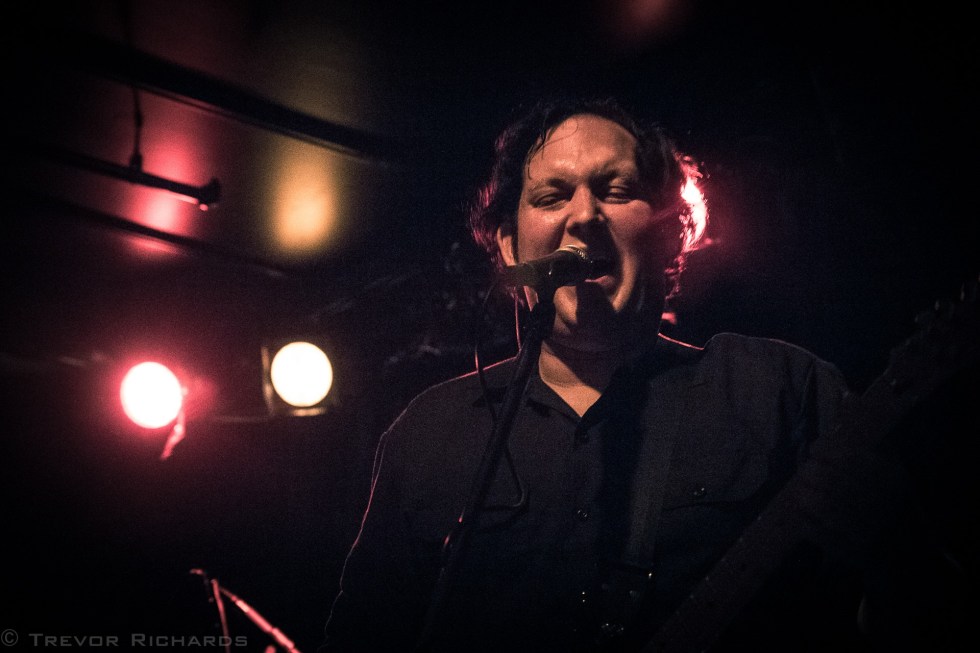I want a major component of this blog to be interviews – a place for musicians to convey their thoughts on issues of music and mind. In these interviews, we’ll learn things. We might find that other musicians think a lot like we do, or maybe we’ll find that they think a lot differently. One thing is for sure: they’ll give you something to think about.
It’s fitting that Bengt’s interview is the first I’m posting here because Bengt was one of the very first musicians Trevor and I met when we moved to Pittsburgh back in 2006. We saw him at Howlers mostly – playing shows, doing sound for bands we went to see, or doing sound for us. We got to know him even better this year, and it’s been fun: Trevor photographed Action Camp‘s CD Release (see the photos here), The Long Hunt played a good show with Action Camp (CP Critic’s Pick, y’all!), he and I bonded over our mutual fondness of The Smashing Pumpkins (thanks, Punksburgh Inquisitions!), we planned some joint shows for the upcoming year, and – of course – we learned a lot through this interview.
I’m very excited to present the very first…
Of Music and Mind Interview: Bengt Alexsander Talks about Music and Depression

Bengt is a busy dude. Since his early music days in Boston, through his decade-plus here in Pittsburgh, Bengt has been working tirelessly to create music, sounds, and a scene. Bengt is seen around Pittsburgh (and beyond) playing with Action Camp and St. Dude (he plays guitar, he sings, he does it all). He also works sound on most nights in clubs around the City. When he’s not doing that, he’s recording and mixing albums for his and other bands. See him play on February 22nd – Action Camp with Spotlights (NYC) and Old Man Rob at Cattivo!
Bengt Talks about Being a Musician
We talked about Bengt’s life as a musician.
What bands do you play in now?
Action Camp and St. Dude.

What were your old bands?
Zipper, Beta Constriction, and Feverfew.
[Sorry, y’all. No links – this shit was pre-internet.]
This is a big one: What does music mean to you?
It is more or less my religion.
Tell me the story of how you got into music. How’d you become a musician? What inspired you? What challenged you?
My parents were musicians so it was always around. I started on drums around 9 or 10. No real challenges, it was a very supportive environment to learn in.
What are some of the challenges you experience as a musician?
To be honest I don’t view anything as a challenge related to music. It’s something I’m very lucky to be good enough at to have my entire life built around it. I suppose not having health care is a challenge of sorts, but I’m more grateful that I’m able to live the way I do and have so much free time for creative expression.
[Yeah, that’s cool.]
What inspires you to keep playing music and performing?
Two things.
On the one side, I view it as something between an intellectual pursuit and a lifelong journey toward master craftsmanship. I want to be the best I possibly can which entails constantly learning and expanding my knowledge and abilities within music.
Secondly, it relates to my referring to music as my religion. I imagine the euphoria you are able to experience from a particularly solid performance or breakthrough is akin to what some describe as religious ecstasy. I have been able to experience that specific kind of tranquility a handful of times in performing so I am always chasing it to happen again.
Bengt Talks about Depression
We talked about Bengt’s experience with depression and the role that music plays.
Do you have – or have you had – depression?
Yes.
How long have you been experiencing depression?
10+ years.
What has your experience of depression been like?
I went on Lexapro for years when I had a particularly rough patch in my personal life about 10 years ago. Ultimately I decided to ween myself off it slowly because I really didn’t like the experience of knowing I’m supposed to feel an emotion but my body not physically doing it. What it did afford me was a perspective on what triggers anxiety and depression for me and provided me with a means of recognizing it coming on and how to control it.
I still have bouts where I spiral down a bit but it’s controllable. I’m not anti-medication but given the choice I would much rather tear up at an inopportune time because a particularly great piece of music, film, or what have you hits me in just the right way than know I’m supposed to be excited and have my body do nothing.

Do you have any theories or ideas about why you experience depression?
It’s genetic. It runs fairly deep in my family.
What role – if any – has music and/or being a musician played in creating or strengthening your depression? (In other words, what are the negative implications of music/being a musician on your depressive symptoms?)
None really. It is more of a positive compulsion than a trigger. If I go for an extended period without some sort of musical expression, that is when it gets really dark and I sink into the heavier depressive states.
How do you cope with your depression? What keeps you going despite the challenge of depression?
Music is my primary means of keeping it at bay. Even in its more financially stressful or creative stagnant periods I still get so much out of it.

What advice do you have for other people – musicians in particular – who suffer from depression?
I think depression is a highly personal experience so I’m not sure my methods work for anyone else. If confronting it bluntly in your lyrics or performance gives you some form of positive catharsis then explore whatever direction that sends you.
What song (or songs) from other artists/bands best sums up the experience of depression for you? Why?
Fiona Apple – Every Single Night.
That song is absolutely heartbreaking how true it cuts to what it feels like for me, and it’s so tightly composed to accent the intention behind the lyrics. Specifically I related to the line “That’s where the pain comes in / like a second skeleton trying to fit beneath the skin” and the way it resolves with repeating the phrase of “I just want to feel everything.”
[Find more songs picked by musicians to sum up their experiences in our Music for You series. Find the first one here.]
What song (or songs) from your bands best sums up the experience of depression for you? Why?
Well I’m not the lyricist so I don’t really have that in my tools for coping. I focus more on the primal impression I get from the songs, so I go through bouts of wanting to play something soft and quiet, fast and sludgy, etc. My general listening habits during the day are dictated as such. Rather than listen to a full album I’m most likely feeling the urge to hear some random aesthetic like fuzzy guitars and searching that out to scratch that itch in the moment.

Bengt Talks about More Stuff
Here’s some other interesting stuff that Bengt talked about in the interview. These are interesting topics and things we’ll be exploring in Of Music and Mind.
- Currently ASMR is a topic I’ve been reading about a bit lately and would love to incorporate in some project. Especially in the context of lulling someone into a state of calm and pulling them back out gradually.
[Curious.]
- A few years ago Action Camp got into a book called “The Inner Game of Tennis” by W. Timothy Gallwey. It’s since been rewritten to cater to musicians and other repetitive professions, but the gist of it is that your body gets to a point of muscle memory that you can flawlessly execute a task over and over again with the only variable being your mind set. Originally it was just written as a small publication in the tennis world but has become a manual for lots of professionals in high pressure situations from sports to music to business. It’s maybe a little New Age but it teaches methods of clearing your head of distraction and stress quickly before a performance which we’ve gotten pretty good at as a result.
[Whoa. That’s pretty interesting to me. I definitely want to check it out. That helps explain how you guys are so tight!]
- The other book I always recommend to anyone composing music is “This is Your Brain on Music” by Daniel J. Levitin. It’s gets pretty deep into how different scales and chords evoke certain emotions from a neurological stand point.
[I’m reading this as we speak. Thanks for the recommendation, Bengt. See other book recommendations on our Resources page.]
Thanks so much to Bengt for taking the time and energy to talk about these important issues! Do you relate to what he shared? What are your thoughts? Let us know in the comments!
If you haven’t yet, take our quick, anonymous surveys: Musicians and Depression, Coping Techniques, and (not directly related to this article but still relevant overall) Musicians and Money.
More articles – and musician interviews – related to music and depression coming up! Be well.
